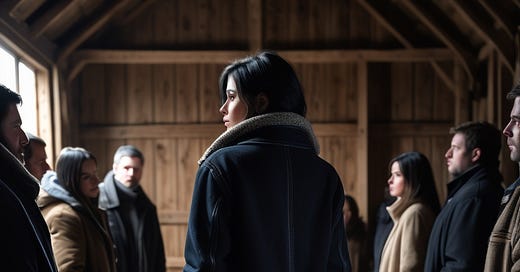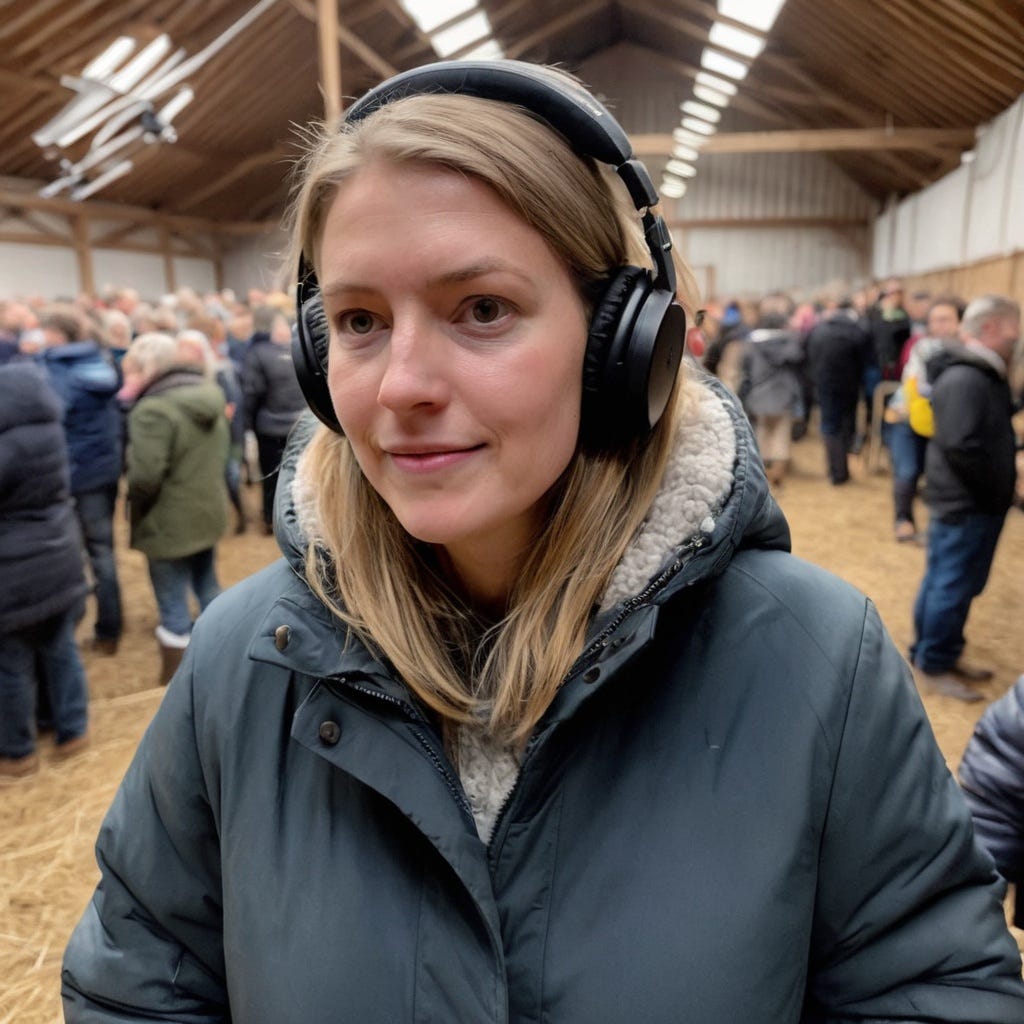They received the first transfer just after sunrise. A discreet sum, routed through three anonymous wallets. The New York benefactor had left only a note: “For what comes next.”
Soham looked at the screen in silence, then handed it to Billy. He raised an eyebrow, then smiled.
— “Then it begins.”
Jan was already checking the tires on the pickup. Tim was loading sacks of seeds into the bed. Julie was pouring black coffee—no sugar—into a shared thermos. That day, they headed north. Long Island would wait. Paper map on their knees, GPS off. Not to run. To move toward.
They visited one farm at a time. A barn turned greenhouse. A couple who had refused CropF's buyout, even under pressure. A rusted grain silo now housing ten families. At each stop, Soham listened more than she spoke. Jan watched people’s hands. Billy circled the perimeter, noting blind spots. Tim and Julie planted the first seeds of something else—presence, not promises.
That evening, gathered in a repurposed tool shed, Billy pulled out a small black cube.
— “It’s not Wi-Fi. Not the Net. It’s shortwave. Silent, untraceable. You need a code to listen.”
He passed each of them a crumpled strip of paper. Numbers. A frequency. A name.
— “Twice a week. A podcast. A guy from the old military network. Reads resistance updates, seed inventories, warning signals. It’s our thread.”
Soham nodded. Tim clenched the paper in his palm. Julie whispered:
— “We’re not alone anymore.”
But nothing was easy. The last village market had nothing but dented cans and stale white bread. The gas station only took cards linked to biometric ID. Mothers waited in the rain with empty bags, children curled against them. No one talked. No one dreamed out loud anymore.
And yet in the fields, in the forgotten pockets of land, another story was beginning. Quietly. With compost. With handmade antennas. With the look that real survivors share.
Back in the pickup, Jan said quietly:
— “It’s fragile. But it’s alive.”
Soham, sliding in beside him, answered:
— “Then we protect it. And we water it.”
By the woodstove, a farmer in a dirt-streaked pair of overalls muttered between sips of lukewarm coffee,
— “I know a place. Old seed co-op. Some heirlooms left—non-GMO. Hidden in a decommissioned silo near Plaster Rock. You go at night. No one asks questions.”
Heads turned toward him. No speeches. Just a quiet nod from Jan. Billy jotted down the coordinates.
Soham looked up from her notebook.
— “If we want this to hold, we need more than hands. We need roots. Real seeds. And people willing to plant them—for others. In the cities, they’re starving. We have to reach them. Not to save them—but to bring them in.”
Silence. Then Julie, under her breath:
— “Smuggling vegetables. I’m in.”
As they began clearing the empty mugs and folding up maps, Billy’s burner phone buzzed on the table. One of the old ones, connected to a single contact.
He read the message once. Then again.
— "Good news," he said under his breath, almost surprised.
Soham looked up.
— "Who?"
— "An old contact on Long Island. Quiet type. He thinks he’s narrowed down the area where she might be hiding."
Jan lifted his chin slightly.
— "Virginia?"
Billy nodded.
— "Still somewhere in-state, but off the radar. Tucked deep in a wooded zone. The kind of place that’s fallen off most maps."
He slid the phone back into his pocket.
— "If it’s really her, we’ve got a shot. But we’ll have to move light."
No one answered right away. But in the silence that followed, something shifted. The air hummed again—with possibility.
If the story speaks to you, consider subscribing to my paid account — or alternatively:




